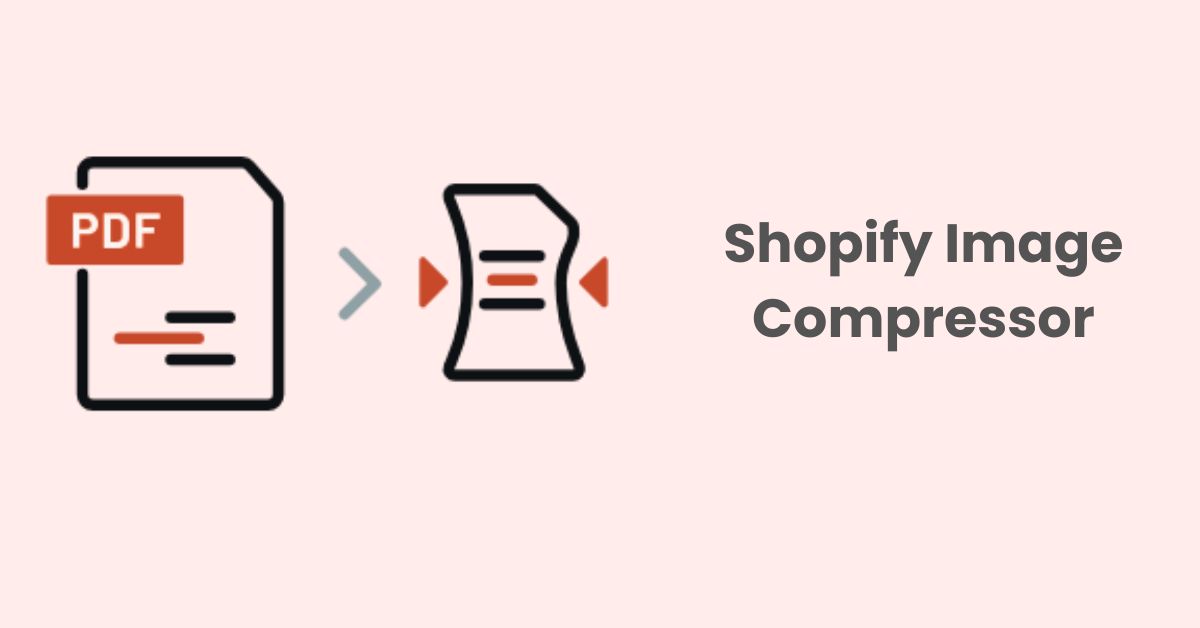AMP: A Faster, Better Mobile Web Experience for Shopify Users
Accelerated Mobile Pages (AMP) is a game-changing open-source initiative by Google designed to deliver lightning-fast web experiences on mobile devices.
In today’s fast-paced digital landscape, where mobile devices have become an integral part of our lives, slow-loading web pages can be a major source of frustration. As mobile internet usage continues to soar, users expect quick and seamless access to information. In this article, we’ll explore what AMP is and how it’s revolutionizing the way we access content on our smartphones and tablets.
What is AMP?
Accelerated Mobile Pages is an open-source web framework developed by Google with the aim of improving the performance and loading speed of web pages on mobile devices. It was introduced in 2015 as a response to the growing demand for faster and more efficient mobile web experiences.
The primary goal of AMP is to make web content load almost instantly on mobile devices, providing a smoother and more responsive browsing experience for users.
The Role of Accelerated Mobile Pages in Shopify SEO
Accelerated Mobile Pages can play a significant role in improving the SEO (Search Engine Optimization) of your Shopify store, particularly when it comes to enhancing the mobile user experience. Here’s an overview of the role of AMP in Shopify SEO:
1. Faster Page Loading Speed:
AMP pages are designed to load quickly on mobile devices. Since page loading speed is a crucial factor in Google’s ranking algorithm, having faster-loading pages can improve your store’s SEO. Users are more likely to engage with and stay on your site if pages load quickly, reducing bounce rates and potentially improving your search rankings.
2. Mobile-Friendly Design:
AMP enforces a simplified and mobile-first design approach, ensuring that your Shopify store is mobile-friendly. Google prioritizes mobile-friendly websites in its search results, so having AMP pages can positively affect your mobile SEO rankings.
3. Enhanced User Experience:
AMP focuses on delivering a better user experience by providing a clean, uncluttered design with faster navigation. This can lead to higher user engagement and satisfaction, which, in turn, can positively impact your SEO.
4. Potential for Featured Snippets:
Google often features AMP pages in its “Featured Snippets” at the top of search results, especially for news articles and information-rich content. If you create AMP versions of your Shopify store’s content, you may have a better chance of appearing in these highly visible positions, driving more organic traffic to your site.
5. Improved Crawlability:
Accelerated Mobile Pages are structured in a way that makes them easy for search engine bots to crawl and index. This can help ensure that your content gets discovered and indexed by search engines more efficiently.
6. Better Mobile Rankings:
Google uses mobile-first indexing, which means it primarily looks at the mobile version of your site when determining rankings. Having Accelerated Mobile Pages pages can improve your overall mobile SEO and positively affect your rankings on mobile search results pages.
7. Increased Visibility in Google News:
If your Shopify store deals with news-related content, implementing AMP can improve your chances of being featured in Google News, a dedicated news aggregation platform. This can help drive more traffic and visibility to your news articles.
How to Implement Accelerated Mobile Pages on Your Shopify Website
Shopify has not introduced built-in Accelerated Mobile Pages support in its default settings. However, you can implement AMP functionality on your Shopify store by using third-party AMP themes or apps that are specifically designed to work with Shopify. These themes and apps can help you create Accelerated Mobile Pages versions of your Shopify store’s content to improve mobile page speed and user experience.
Use Themes Designed to Support Accelerated Mobile Pages
1. Choose an AMP-ready Theme
Shopify does not have native Accelerated Mobile Pages support integrated into its default themes, but you can select an AMP-ready theme from a third-party theme provider that is explicitly designed to support AMPs for Shopify. Some popular AMP-ready themes include “Mobile-First” and “PWA & Google AMP” themes.
2. Purchase and Install the Theme
After choosing a theme, you’ll need to purchase it and then install it on your Shopify store. Follow the theme provider’s instructions for installation, which typically involve uploading the theme file.
3. Configure the AMP Theme
Once the theme is installed, access its settings or customization options. Configure the Accelerated Mobile Pages theme settings to match your brand, content, and design preferences. These settings can vary depending on the theme you’ve chosen, but they usually include options for colors, fonts, and layouts.
4. Generate AMP Versions of Content
Many AMP themes have built-in functionality to automatically generate AMP versions of your content. This includes product pages, collections, and blog posts. Enable this feature in the theme settings. Depending on the theme, this process may be automated or require some manual setup.
5. Test Your Accelerated Mobile Pages
It’s crucial to test your AMPs to ensure they comply with AMP standards and display correctly on mobile devices. Use tools like the Google AMP testing tool to identify and fix any issues. This step is essential to provide a seamless user experience and maintain SEO benefits.
6. Publish Your Accelerated Mobile Pages
After thorough testing and customization, you can publish your AMP pages. Typically, this involves making them live on your website by setting the AMP theme as the default for mobile devices.
7. Submit Accelerated Mobile Pages‘ URLs to Search Engines
Inform search engines about your AMP pages by submitting their URLs through Google Search Console or other relevant search engine tools. This step helps with indexing and ensures that your AMP content is recognized and prioritized in mobile search results.
Install AMP Applications
In case you cannot find a theme that is both AMP-ready and compatible with your business’s content, there are several third-party AMP apps available in the Shopify App Store that could help you create and manage Accelerated Mobile Pages versions of your Shopify store’s pages. Furthermore, they can help improve mobile page load times, enhance user experience, and potentially boost SEO rankings for mobile searches.
Here are some Accelerated Mobile Pages apps for Shopify stores that you can take into consideration:
SearchPie: SEO Booster & Speed
Search Pie: Speed & SEO Booster is one of the most powerful and multi-use SEO apps in the Shopify App Store, it offers almost everything merchants need for SEO: speed optimizations, meta tags, image compression, AI features, etc.
One of the outstanding features Search Pie provides is AMP (Accelerated Mobile Pages), an out-of-the-box tool for Shopify merchants to create AMPs for their stores. This tool allows you to set up AMP for Homepage, Products, Collections, Blogs, and Blog Posts pages just with the clicks of a few buttons. You can also separately convert one page to Accelerated Mobile Pages at once in case you only want to generate the AMP version for some pages.
Search Pie’s Accelerated Mobile Pages are set in a default theme at first, but you can always customize the theme to make it look as you wish. It will show you some options to edit each part of your page, including the Header, Body, and Footer, as well as Colors (applied for all Accelerated Mobile Pages on your site).
Before publishing, you can see how your Accelerated Mobile Pages pages currently look on the right.
AMP by Shop Sheriff
AMP by Shop Sheriff is an app that focuses on creating Accelerated Mobile Pages versions of your product pages. It offers customization options and ensures that your product pages are AMP-compliant, which can improve your mobile SEO.
Shop Sheriff AMP automatically generates Accelerated Mobile Pagesversions of your product pages, collection pages, and blog posts. This helps ensure that your content loads quickly and displays correctly on mobile devices, providing a better user experience.
The app allows you to customize the appearance of your AMPs to align with your brand’s design and style. You can control the layout, colors, fonts, and other design elements to maintain a consistent look across your pages.
You can select which pages to add Accelerated Mobile Pages to with Shop Sheriff, whether it’s one page or all of them.
The AMP pages generated by the app are responsive and adapt to various mobile devices and screen sizes. This ensures a consistent and user-friendly experience for your mobile visitors.
The Accelerated Mobile Pages app by AmpifyMe
AmpifyMe’s app is designed to ensure that your Accelerated Mobile Pages adhere to the AMP Project’s standards and guidelines. It creates Accelerated Mobile Pages versions of your Shopify store’s content, such as product pages, collections, and blog posts.
AmpifyMe automates the process of generating Accelerated Mobile Pages versions of your content. It works to create fast-loading and mobile-friendly pages without requiring extensive coding or manual intervention.
The app typically offers customization options, allowing you to tailor the appearance of your AMPs to match your store’s branding and design preferences. You can often adjust colors, fonts, and layout settings.
AMP Updates and the Future
The future of Accelerated Mobile Pages is likely to be intertwined with broader trends in web development This includes the emphasis on user experience, performance optimization, and the adoption of open web standards.
AMP’s core focus on improving mobile page load times and user experience is likely to remain relevant. As mobile usage continues to grow, there will be an ongoing need for faster-loading pages, especially in regions with slower network connections.
Google’s emphasis on user experience and page speed has led to the integration of AMP principles into Core Web Vitals, which are key metrics for measuring page performance. Accelerated Mobile Pages’ focus on fast loading times and mobile optimization aligns well with these performance metrics, making it likely that AMP will continue to play a role in SEO and user experience efforts.
While AMP was initially popularized for news articles and publisher content, its adoption has expanded to other industries and use cases. E-commerce, for example, has seen increased usage of AMP to create fast-loading product pages and improve mobile conversion rates. As Accelerated Mobile Pages’ versatility grows, it may find applications in various sectors.
In Summary
Accelerated Mobile Pages offer numerous benefits for websites, particularly those focused on delivering content quickly and efficiently to mobile users. By improving page loading times, enhancing the user experience, and providing SEO advantages, Accelerated Mobile Pages helps make the mobile web a more enjoyable and accessible place for all users.





